Saving TruthSample

Confusion’s Consequences—Getting Freedom Wrong
The university has traditionally been a unified place (Latin unum) where faculty and students gather in order to discover truth (Latin veritas). A generation ago, college was expected to be a place of freedom, particularly for expression of and engagement with different—even disagreeable—ideas. Sadly, recent events and numerous statistical surveys reveal that such days may be over. Today, many on university campuses expect to be protected or shielded from speech and ideas that could be deemed offensive, even if the free speech rights of others—as well as the pursuit of truth—are sacrificed in the process.
The current climate, in which people are forcibly prevented from sharing ideas, has arisen because the Culture of Confusion has mistaken autonomy for freedom. In a post-truth culture, where preferences and opinions are elevated over facts and truth, anything that challenges our preferences, even if a challenge is laced with facts, is deemed offensive and oppressive. The Western contemporary concept of freedom is all about the ability to do, feel, and say whatever one wants, as long as it doesn’t hurt someone else. But this isn’t freedom—it’s autonomy (which literally means being a law unto one’s self). Freedom operates at its best within the confines of truth. The pursuit of autonomy is the root of the post-truth mindset that fuels the current Culture of Confusion. If each of our personal preferences is celebrated without truth as our guide, if we are all “laws unto ourselves,” confusion is inevitable in at least three important ways.
First, the culture seems to have lost its ability to reason—to think and act clearly and wisely. When feelings are vaunted over facts in the quest for autonomy, reason dies in the process. If the facts get in the way of unrestrained autonomy, then the facts will have to be ignored and any opposition will be silenced.
Second, the Culture of Confusion has lost its moral accountability. If it’s true that “man is the measure of all things,” as Protagoras proclaimed centuries ago, then we make the rules, not God. If there is no God to help us, then we have to help ourselves. There are atheists who claim that the “better angels of our nature” will result in us reaching a rough agreement about moral values. But history has shown us that it’s only a short leap from secular humanism to self-worship and supreme authority. Moral clarity shows us the objective truth beyond our preferences. And we have to mold our desires and preferences to the truth’s boundaries. Because we don’t want to conform, moral clarity has become the vice of the day, and moral confusion the virtue.
Third, in striving to go from bearing the Imago Dei (with accountability to God) to Deus Homo (with accountability to no one), we have lost what it means to be human and to value other human beings. When we become the measure of all things, then we determine which humans are valuable and which ones are not, meaning our sense of objective human value is lost in the process.
There is a fundamental difference between limitless individual autonomy and true freedom. The Bible opposes the former and champions the latter (James 1:25; 2:12). The book of Judges demonstrates this well. Each time the people’s thirst for autonomy landed them in trouble, God sent a judge—a person who took his authority from God—to guide the people. But they rejected God’s authority time and again in favor of their personal sovereignty until the resultant chaos became too much. When we jettison truth as our guide, we will end up with autonomy and then chaos, but not freedom. Each one of us, individually in our hearts, needs to search for the source of freedom—truth.
Questions
- What is your definition of “freedom”? How does it compare with your definition of “autonomy”?
- Do you believe that freedom operates at its best within the confines of truth? Why or why not?
- Why do reason and morality necessarily decline if one elevates feelings over facts?
- Jesus claimed that His disciples will “know the truth, and the truth will set [us] free” (John 8:32). Why is this so?
Bible Passages
- James 1:25; 2:12
- Genesis 1:27; 5:1
- Psalm 8:5
- Psalm 139:13–14
- Judges 17:6
- 1 Samuel 8:4–9
- John 8:31–33
Scripture
About this Plan

Based on Abdu Murray's new book Saving Truth. It provides arguments from a Christian perspective for the foundations of truth and how those foundations apply to sexuality, identity, morality, and spirituality. For those enmeshed in the culture of confusion, the book offers a way to untangle oneself and find hope in the clarity that Christ offers.
More
We would like to thank RZIM for providing this plan. For more information, please visit:
https://rzim.org/global-blog/new-book-saving-truth-by-abdu-murray-now-available/
Related Plans
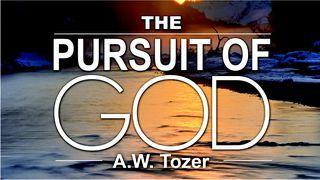
Pursuit of God By A.W. Tozer
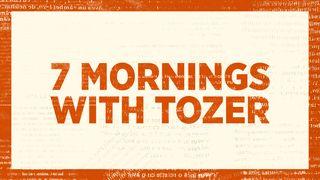
7 Mornings With A.W. Tozer
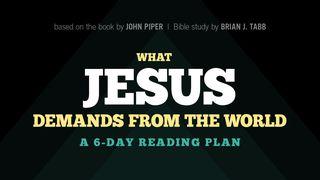
John Piper On What Jesus Demands From The World
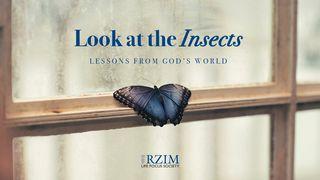
Look at the Insects: Lessons From God’s World
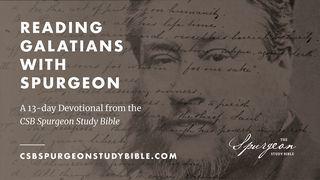
Reading Galatians With Charles Spurgeon
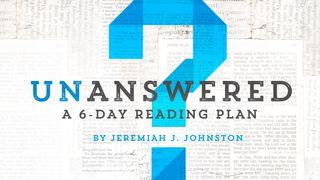
Unanswered

Solus Christus : Bible Reading Community

Hope in Darkness

Kingdom Faithful Resolutions for 2026
